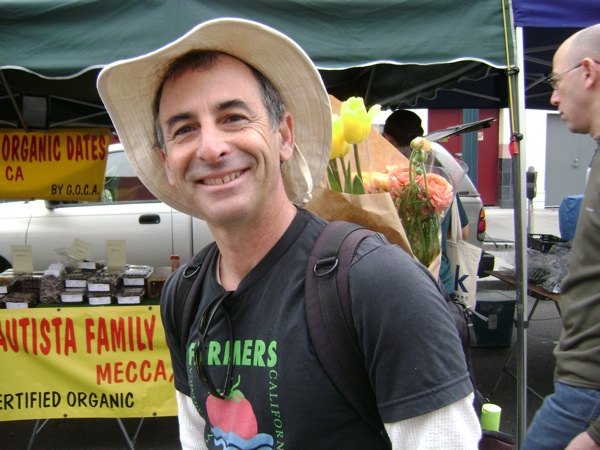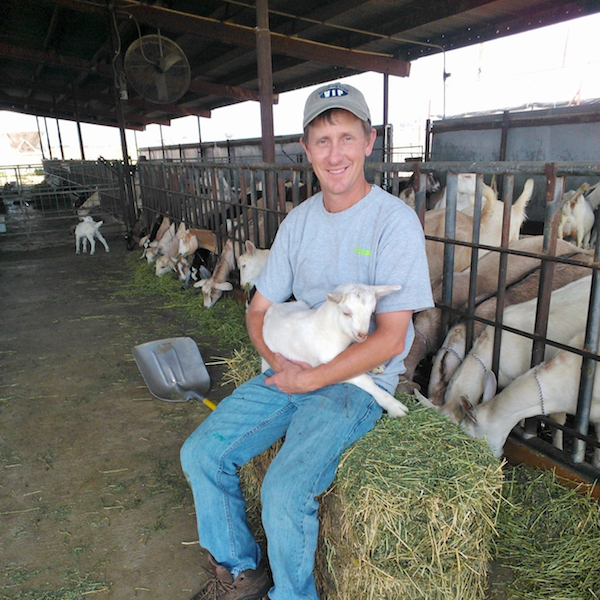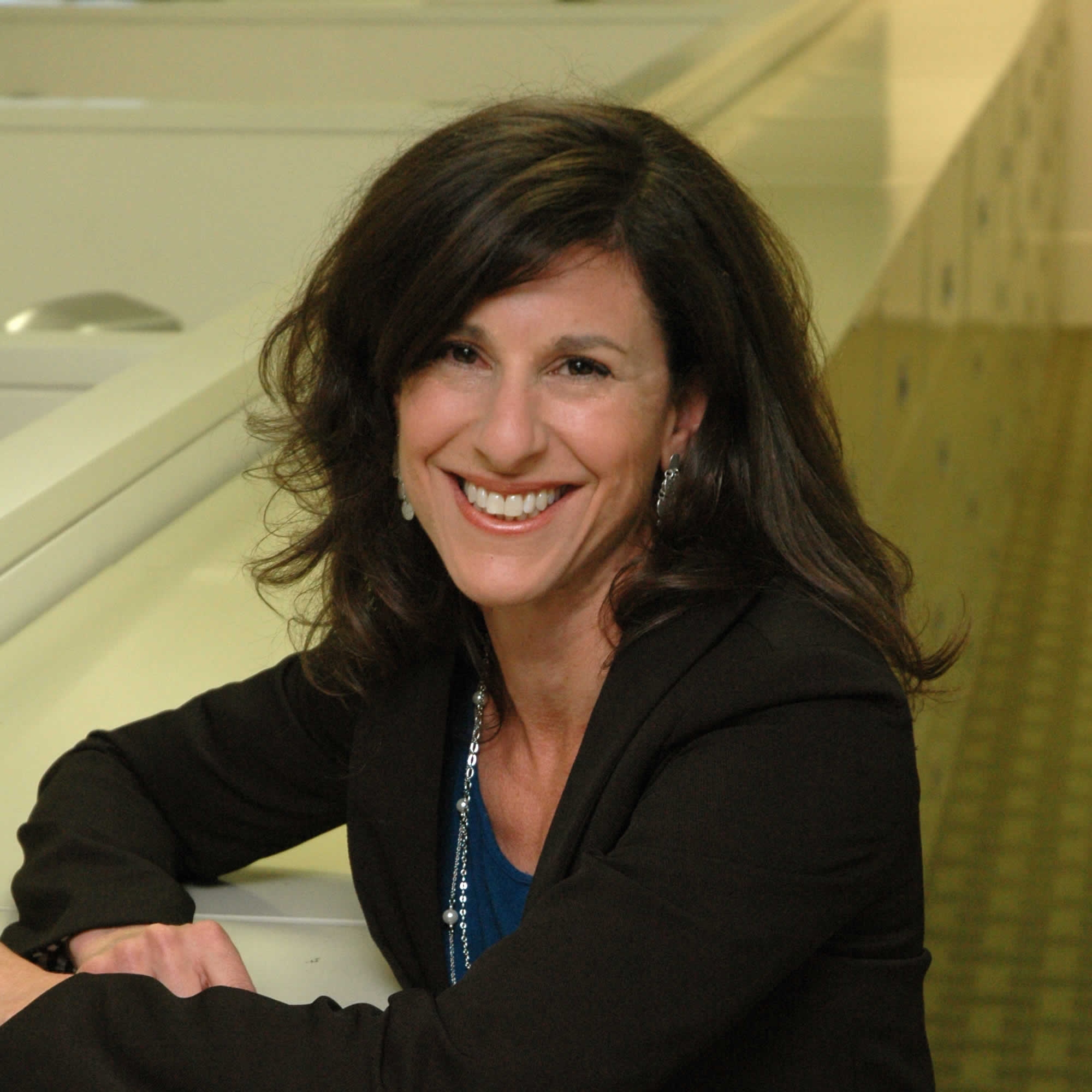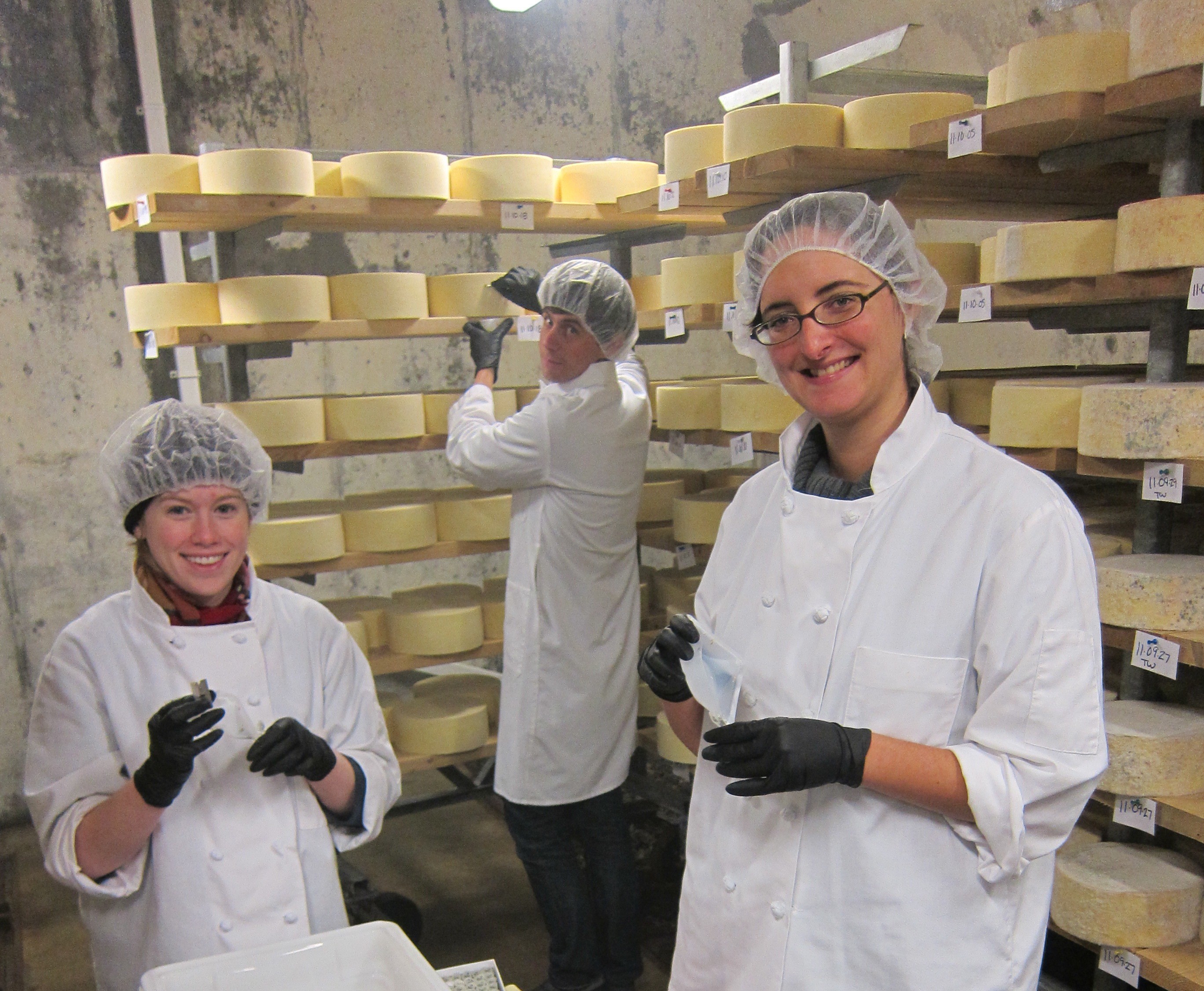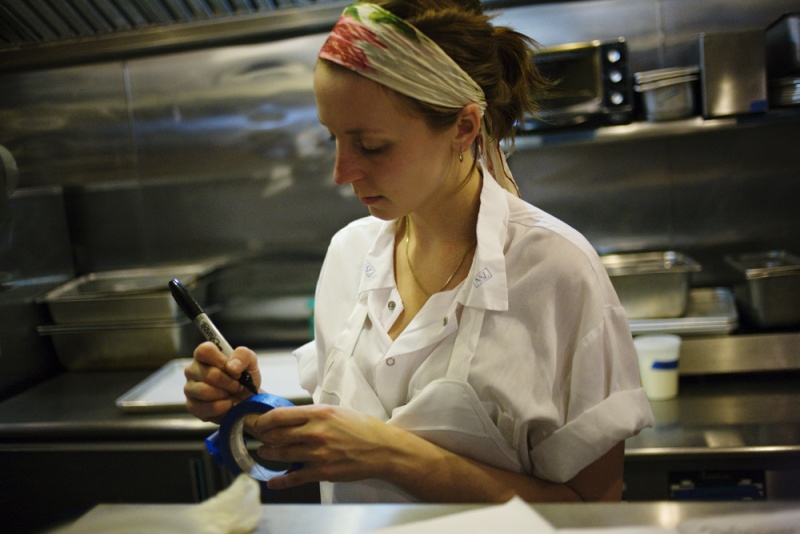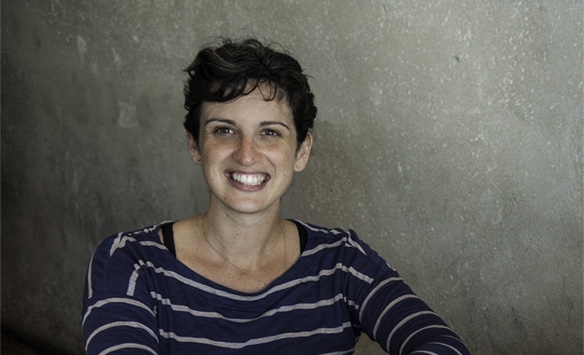Zoe Nathan is the co-owner of several Los Angeles restaurants, including Huckleberry Bakery and Café and Milo and Olive. An avid baker, Zoe honed her craft at Tartine in San Francisco where she learned the value of using color as a flavor. At her own restaurants, she has received widespread acclaim for her pastries.
See Zoe Nathan speak at our next 2013 Science & Food public lecture!
The Science of Pie
Featuring Chefs Christina Tosi and Zoe Nathan
Sunday, May 19 @ 2:00pm
Covel Commons Grand Horizon Room (map)
BUY TICKETS

Image credit: Emily Hart Roth
- What hooked you on cooking?
- I wanted to do something with my hands and was searching for a way to express myself in a way that I could connect with people around me instantly. I loved being able to make something and have someone eat it right away and hopefully enjoy it and understand where I’m coming from. Plus it just makes me really happy!
- The coolest example of science in your food?
- For me it’s the process of baking. Working with so few ingredients, and then deciding on different processes that will create totally different things to eat. That’s why I never worry about someone stealing a recipe from me, because at the end of the day, it’s not knowing what goes into baking something that makes it special, it’s how you bake it.
- The food you find most fascinating?
- Bread. For exactly the same reason as above. It’s all about process. That’s why I laugh when people say, “You can only make great Sourdough in San Francisco, or Bagels in New York,” but then I see people try with bad ingredients and a sloppy process. If you care enough you can make great bread anywhere.
- One kitchen tool you could not live without?
- Mixing bowls!
- What scientific concept–food related or otherwise–do you find most fascinating?
- The concept I find the most important in baking is the process of caramelization. You can use all the right ingredients and even the right process, but if you don’t get the right caramelization and color on a bake good it simply doesn’t look or taste good.
- Five things most likely to be found in your fridge?
- Eggs, kale, milk (I have a 2 year old), Dijon mustard, cream cheese.
- Your best example of a food that is better because of science?
- I’m not a big fan of modern science in cooking, but I’m super happy to have freezers so that I can freeze my scones and biscuits so that I can put the maximum amount of butter inside without having it leak out. I’m happy for convection ovens so my baked goods get that extra little jump. I’m happy for steam on my bread oven so my bread gets that nice shine. I’m also happy for bright lights so my bakers can come in at 3 a.m. and still feel safe!
- Your all-time favorite ingredient? Favorite cookbook?
- Salt is my all-time favorite ingredient. I have so many cookbooks that I love I can’t choose one.
- How do you think science will impact your world of food in the next 5 years?
- Honestly, I think it’s mostly negative. I think a lot of people eat processed foods because they’re easier to get because science has made them taste good and last a lot longer than it actually should. Because of all the big advancements in technology people are also used to getting what they want quickly, but good cooking is a patient thing, so I think fewer and fewer people know how to cook. I also think young cooks who are obsessed with immersion circulators and cvap machines often don’t know how to cook a piece of meat on a grill or in a pan which is a shame because that’s how it tastes best.
- Your standard breakfast?
- Leftovers from whatever my son hasn’t eaten and he eats pretty well. When I actually take the time to make it for myself it’s oatmeal cooked in homemade almond milk.
